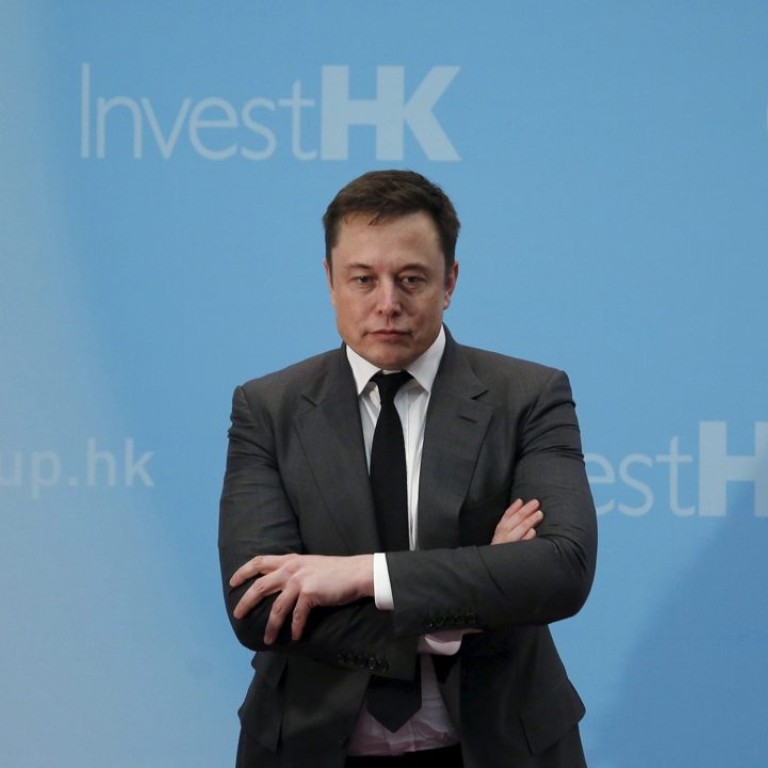
The mystery of why Hong Kong spends so much but has so few start-ups
Pouring more money into young companies at Cyberport is doomed to fail
If at first you don’t succeed why not try the same thing again by adding a lot more cash and employing a shinny new set of words to describe mundane things. This, in essence, is the government’s approach to furthering its increasingly bizarre ambition to transform Hong Kong into a hi-tech hub or whatever is the latest buzzword for this stuff.
We’ll get to the big picture but I cannot resist furnishing a flavour of the government’s muddled thinking with some examples of the new-speak contained in Financial Secretary John Tsang’s recent budget speech.
Apparently the luxury property development, aka Cyberport, will soon be home to 3,000 meters of ‘co-working Smart Space’ for financial technology or fintech start-ups. This is what used to be called subsidised office space.
An even more shocking thought is that hi-tech entrepreneurs might even be able to manage without bureaucrats holding their hands
Then there’s the wonderful fintech dedicated platforms ‘to ensure that the market will balance between market demand and investors’ understanding and tolerance of risk when introducing innovative financial products and services’. This gobbledygook refers to how various government bureaucracies will liaise with the fintech industry. A translation into plain English renders this as meaning that there are plans for new bureaucratic strata.
There is a whole lot more of this stuff and it is linked to payouts sinking billions of taxpayers’ money into various schemes dreamed up by the bureaucracy.
Ambition is a fine thing and no one can blame the government for looking at ways of diversifying Hong Kong’s industrial base. However when the starting point for this ambition is that the bureaucrats know best, you know we are in trouble.

Anyone who has dealt with government knows that it requires a special skill set to get the bureaucracy to do things, and an even more refined knowledge of how government works to persuade bureaucrats to part with cash. Generally speaking inventors and novice entrepreneurs have an entirely different set of skills and they find it difficult to operate within this kind of bureaucratic structure.
Hong Kong’s own experience provides valuable evidence of why there is no need to get an overbearing bureaucracy involved in business. Most of the successful industries in this place did not arise because the people who founded them were obliged to spend their time trying to persuade bureaucrats of their viability.
Successful examples include: the creation of a vast merchandising industry, the former toy and textile industries and the hospitality industry. They didn’t need a government official to tell them what to do or how to do it; all they needed and obtained were the basics need to get business off the ground.
This includes a simple framework for establishing companies, a decent infrastructure for communications, transportation etc. combined with the essential ingredient of a solid rule of law environment and then, once companies get going, they benefit from a low tax regime and access to funding that mainly came from commercial sources. Now the mighty folk sitting in Tamar have convinced themselves that start-ups will not happen unless they are in the driving seat.
And they are mesmerised by overseas examples that have little relevance to Hong Kong’s situation. For example they keep citing how the Israeli government has made this tiny country into an extraordinary hi-tech centre. However Israeli government involvement is largely driven by its enormous defence industry, which is a consequence of the nation being perpetually in a state of war.
Fortunately Hong Kong is not in this situation and will not have the government as the biggest customer for hi-tech products and their many spin-offs. Nor is Hong Kong like Singapore, which also has a massive defence industry and has traditionally relied on state owned and operated enterprises to make the economic weather. This degree of state economic domination has yet to be embraced in Hong Kong, yet the bureaucrats seem to obsess over what happens in Singapore.
When they are not looking fondly overseas they busy themselves churning out statistics to prove how successful they have been in stimulating hi-tech industry. They have big lists of how many companies fill up Cyberport and the Science Park and they can even tell you how many patents have been registered by these companies. What they can’t explain is why Hong Kong is more or less nowhere on the hi-tech map, maybe that’s because the reality of their schemes is that they amount to very little indeed. An even more shocking thought is that hi-tech entrepreneurs might even be able to manage without bureaucrats holding their hands.
Stephen Vines runs companies in the food sector and moonlights as a journalist and a broadcaster

